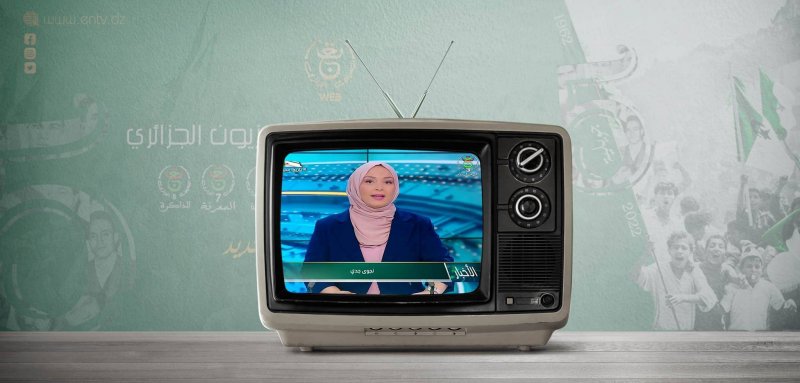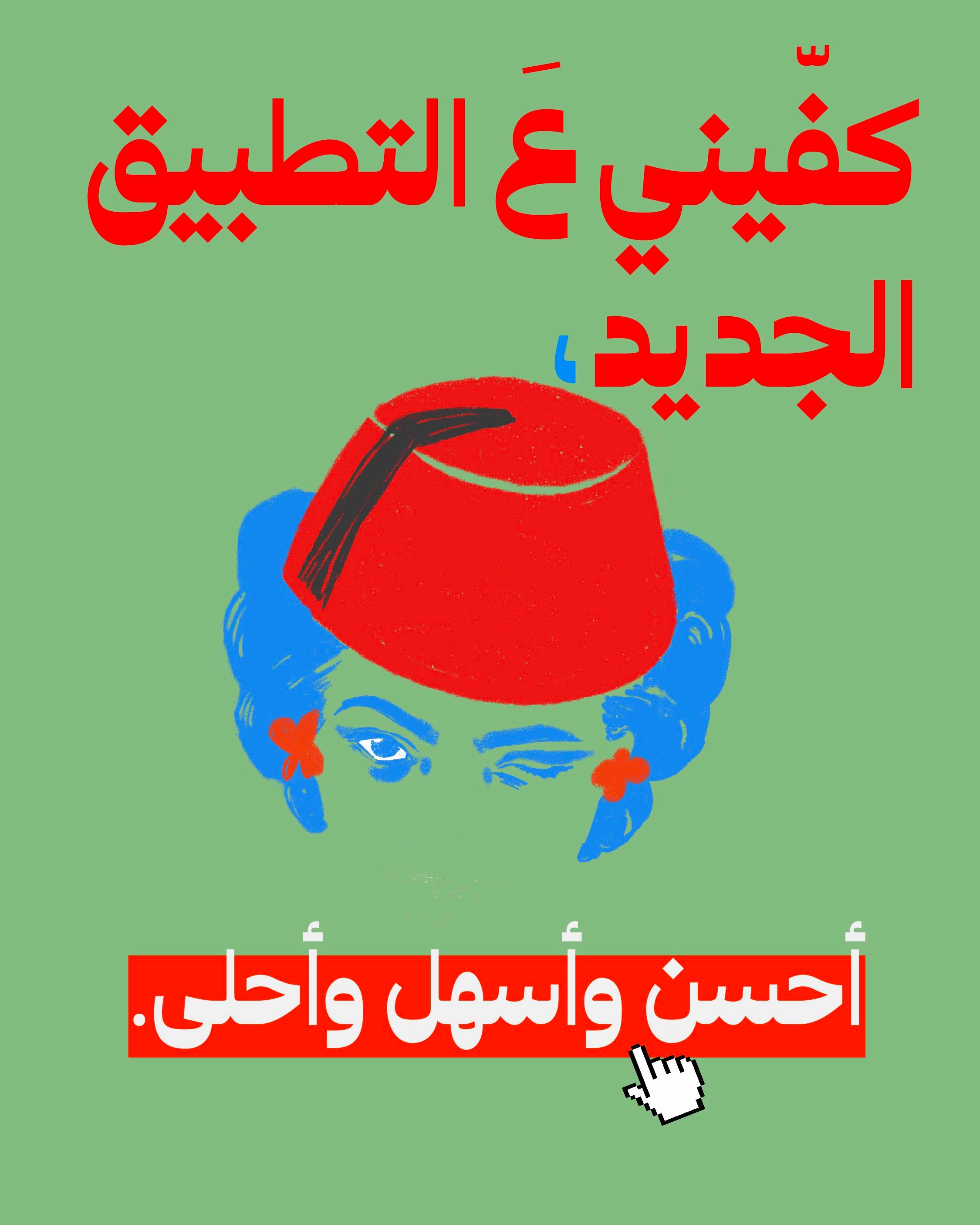For the first time in half a century, Algerians watched a veiled female news anchor gave a brief on state television on the morning of February 15, 2022. The nation saw this as a historic event, after the station broke the restriction imposed on headscarf on public television.
Since the day Algeria gained independence from the French occupation on July 5, 1962, and regained sovereignty over its radio and television buildings in October 28, 1962, Najwa Gedi is considered the first hijabi to present the news bulletin.
Algerian TV anchor and presenter of the main news bulletin Said Toubal posted on his official Facebook page, saying: “For the first time after the independence, Algerian state television gives space for veiled women in news bulletins, and colleague Najwa Jedi shines bright in her presence.”
The headscarf is forbidden
A member of the Algerian National Union of Journalists (SNJ), Reda Jawadi, asserts that Algerian television “has not allowed veiled women to appear on the screen for more than half a century since the restoration of full sovereignty over state radio and television despite the fact that Islam is the state religion.”
Speaking to Raseef22, Jawadi stressed, “The mentality of banning the appearance of the headscarf on the screen is an inherited mentality from the orchestrators of this public institution, and there is no law inside the tv station building that forbids the tv appearance of veiled women, but these are rather inherited instructions.”
The TV’s latest step marks the start of giving thousands of veiled female journalism graduates the opportunity to work in the television station in the capital or in one of its regional institutions
He added, “The headscarf was forbidden on television due to personal convictions and improvised decisions issued by successive officials in managing and running Algerian state television since the independence, and this of course, is prompted by successive governments that were greatly satisfied with this policy.”
Reda Jawadi said, “The television’s latest step marks the beginning of giving thousands of female graduates from media and communication colleges in the country and veiled women who aspire to appear in media, the opportunity to work in the state television building on Al-Shuhada Street, or in one of its regional institutions across the states”
The female body on the screen
Despite restoring sovereignty over television and radio from the French on October 28, 1962, Yamin Boudhan, professor of media at Qatar University, says, “All the succeeding decision makers in media and television had been inheriting European thought in both appearance and presentation.”
In their eyes, the headscarf is “a backward and uncivilized image, an idea that has been inherited from French thought, which had been fighting all forms of Islam while seeking to destroy the Algerian identity from within the deepest parts of Algerian society. Unfortunately, even after the independence, this way of thinking continued for more than half a century.”
While speaking with Raseef22, he went on to add that the body, as it was being promoted, “had been crucial in appearing on television, and it had been important to show prominent aspects of women as an image or reflection of civilization and in order to attract viewers, and this was what Algerian television has been focusing on throughout that period.”
According to Yamin Boudhan, the dream of veiled women to work in Algerian public television became “a far-fetched fantasy and a near impossibility, so all the female graduates of the media and communication departments in Algeria have ended up working in administration or education, and those who want to specialize in the field end up going to radio, news agencies, and various newspapers.”
Activist Ahmed Samir tweeted: “Najwa Jedi is the first veiled anchor to be seen on the Algerian television screen. This is the first time since the independence that a veiled Algerian woman has appeared on state television. The standard practice of refusing to show veiled broadcasters has ended, a practice that represents a contradiction with the general situation in Algeria, where the headscarf itself is a widespread practice throughout the country.”
Veiled? Don’t even dream of a job
Algerian journalist Sabah Boudras, who has been teaching in the country of Sweden for more than four years, confirms that she “applied to work on Algerian public television, but her application was rejected during her first interview because of the hijab.”
In a statement to Raseef22, Boudras attests that, “The response was harsh and direct, and was openly tied to the hijab with the words: ‘You want to work in the news department and present news bulletins... Do not even dream of it because this will not come true. If you want to work, you should work in the Al-Qur’an Al-Kareem channel (Quran TV)’.”
Sabah then adds, “I love news bulletins, so how can I go about working in another sector, and why was it prohibited? Why are the hopes and dreams of veiled women to be creative and make media appearances, shattered and ruined by the Algerian official channel?”
Because of this and due to other reasons in the education field that she was working in, Sabah Boudras decided to leave her homeland and settle in Sweden, where she currently works in the education sector and creates news reports for Arab channels from there, and by contrast, the headscarf did not stand in the way of any of that.

Firing hijabis
Back in Algeria, a number of female jopurnalists decided to wear the hijab on Algerian state television but were prevented from presenting news and even from non-news programmes.
Naima Majer, an Algerian media figure, is the first anchor on Algerian television to wear the hijab, specifically during the month of Ramadan in the year 1994. But she was prevented from appearing in her interviews simply because she was wearing the hijab.
Naima Madjer, the sister of star player Rabeh Madjer, said in a statement to Raseef22, “I was very pleased with the appearance of Najwa Jedi wearing the hijab on state TV, a decision that we have been waiting for for many years, as the ban was the dominant position within the corridors of the television station.”
She adds that this appearance “takes us back to 1994 when I decided to wear the hijab. At that time, I was prevented from continuing my tv programs and interviews that my viewers were waiting for, and I contented myself with administrative work inside the television building, but to this day I have not regretted my decision to don the headscarf.”
But, she said, “Every time I was reliving the pain that veiled women feel in Algeria, whenever I tried to fulfill their wish to present on public television, and I am ready to return to presenting and broadcasting news following the television’s decision to lift the ban with the televised appearance of veiled presenter Najwa Jedi.”
There are many female journalists and media figures on Algerian television who have been suspended from appearing on the screen because of the hijab, most notably Naima Madjer, Nassira Mazhoud, Iman Mahjoubi, Houria Harath, and Sawsan ben Habib, according to the Algerian Ouras platform.
The emergence of the veil on the news bulletins of Algeria’s public television will restore hope for media graduates and those who love journalistic work to be able to access this public media institution. However there are also fears of other impromptu decisions that may come up at any time to ban the hijab once again, as long as things are being done improvisationally and decisions are arbitrary and aren’t based on any actual legal text within the institution.
رصيف22 منظمة غير ربحية. الأموال التي نجمعها من ناس رصيف، والتمويل المؤسسي، يذهبان مباشرةً إلى دعم عملنا الصحافي. نحن لا نحصل على تمويل من الشركات الكبرى، أو تمويل سياسي، ولا ننشر محتوى مدفوعاً.
لدعم صحافتنا المعنية بالشأن العام أولاً، ولتبقى صفحاتنا متاحةً لكل القرّاء، انقر هنا.


